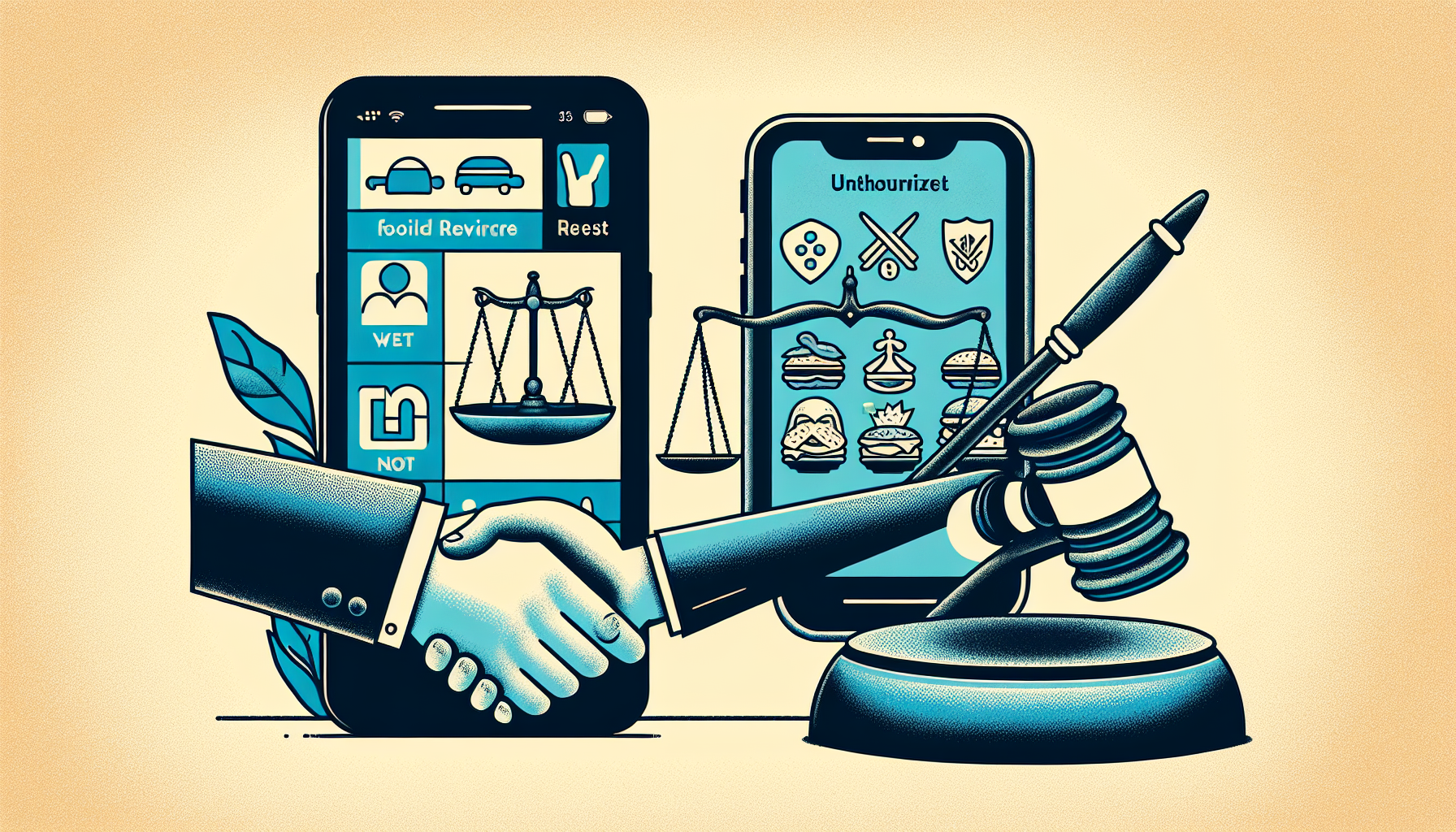
Grubhub Reaches $25 Million FTC Settlement: Implications for Customers, Drivers, and Restaurants
Grubhub, a prominent food delivery service in the United States, has agreed to a $25 million settlement concerning allegations from the Federal Trade Commission (FTC) and the Illinois Attorney General. The claims include misleading customers, misinforming drivers, and listing restaurants without their permission. This settlement signifies a critical moment in the continuing examination of gig economy companies and their operational methods. Below, we outline the main aspects of the case, its consequences, and what it signifies for all parties involved.
Allegations Against Grubhub
Misleading Customers with Concealed Fees
A major allegation against Grubhub involved its use of misleading pricing tactics. The company promoted low, flat-rate delivery charges but added concealed fees referred to as “service fees” or “small order fees.” These charges were effectively delivery fees labeled differently, leading customers to misunderstand the actual costs of their orders.
The FTC characterized this approach as a “pricing shell game,” with a former Grubhub executive admitting to the deceptive nature of these fees. This strategy not only frustrated users but also diminished trust in the platform.
Deceptive Pay Claims to Drivers
Grubhub was also charged with misleading its delivery staff regarding potential earnings. For example, the company claimed that drivers in New York could earn up to $40 per hour, while the average pay was around $10 per hour. In Chicago, drivers were promised up to $26 per hour, yet the average pay was merely $11.
These exaggerated pay claims set up unrealistic expectations for drivers, fostering dissatisfaction and distrust among gig workers.
Unauthorized Restaurant Listings
To enhance its appearance and competitiveness, Grubhub reportedly included as many as 325,000 unassociated restaurants on its platform without their approval. This practice, which reportedly began in 2019, led to significant issues for both consumers and restaurants.
Customers frequently faced unexpected fees and ordering problems regarding these unauthorized listings. At the same time, restaurants dealt with the fallout of customer complaints, harming their reputations and incurring financial setbacks.
Blocking Customer Gift Card Balances
Another concerning allegation involved Grubhub blocking accounts of customers who had large gift card balances. Affected users reportedly received no clear rationale or adequate means to contest the account bans, rendering them unable to access their funds.
The $25 Million Settlement
As part of the settlement agreement, Grubhub will pay $25 million to resolve these allegations. The settlement also entails a series of corrective steps the company must take to enhance transparency and fairness in the future. These include:
- Clearly informing customers of all delivery fees upfront.
- Providing transparent information to drivers regarding their possible earnings.
- Listing restaurants on the platform only with their explicit consent.
While Grubhub denies the allegations, the company expressed that settling the matter was in its best interest for future operations.
The Wider Implications for Gig Economy Platforms
Heightened Regulatory Oversight
The Grubhub settlement aligns with a broader pattern of regulatory examination directed at gig economy platforms. Companies such as Uber, DoorDash, and Instacart have also faced backlash for their operating methods, particularly concerning worker remuneration and transparency.
This case serves as a cautionary tale for other platforms, indicating that deceptive practices will be scrutinized. FTC Chair Lina M. Khan highlighted that there is no “gig platform” exemption from existing regulations, suggesting a more proactive approach to holding these companies accountable.
Rebuilding Trust in Food Delivery Services
For customers, drivers, and restaurants, this settlement represents a movement towards reinstating trust in food delivery platforms. Pricing transparency, fair compensation for drivers, and ethical treatment of restaurants are vital for the ongoing viability of these services.
What Lies Ahead for Grubhub?
Grubhub’s recent acquisition by the food delivery startup Wonder for a fraction of its pandemic-era valuation introduces another layer of complexity to the company’s future. While the settlement may allow Grubhub to pivot in a new direction, it also underscores the difficulties the platform confronts in rehabilitating its reputation and regaining market share.
Conclusion
The $25 million settlement between Grubhub and the FTC highlights the necessity for transparency and ethical conduct within the gig economy. Despite Grubhub’s denial of the allegations, the corrective actions required by the settlement aim to resolve the issues that have affected the platform. For customers, drivers, and restaurants, this case serves as a reminder to stay alert and demand accountability from the services they depend on.
Frequently Asked Questions
What were the primary allegations against Grubhub?
Grubhub faced accusations of misleading customers regarding delivery fees, misrepresenting earnings to drivers, listing restaurants without their approval, and blocking accounts with substantial gift card balances.
How will the $25 million settlement be allocated?
The settlement amount will mainly be used to compensate customers, drivers, and restaurants impacted by Grubhub’s practices. Specific details regarding the distribution process have not yet been revealed.
What adjustments is Grubhub required to implement following the settlement?
Grubhub must inform customers of all delivery costs upfront, provide transparent earning details to drivers, and list restaurants on the platform only with their consent.
What effect does this settlement have on other gig economy platforms?
The settlement establishes a precedent for heightened regulatory oversight of gig economy platforms, indicating that deceptive practices will be increasingly challenged.
What does this imply for Grubhub’s future?
While the settlement enables Grubhub to progress, the company faces challenges in restoring trust and competing in a saturated food delivery market. Its recent acquisition by Wonder may also affect its strategic direction.
How can customers protect themselves from hidden fees on food delivery platforms?
Customers should carefully examine their order summaries before finalizing a purchase and be vigilant about any additional charges categorized as “service fees” or “small order fees.”
Will this settlement result in improved pay for Grubhub drivers?
The settlement mandates that Grubhub be clear about driver earnings, which could lead to more accurate expectations and potentially enhanced pay structures in the future.